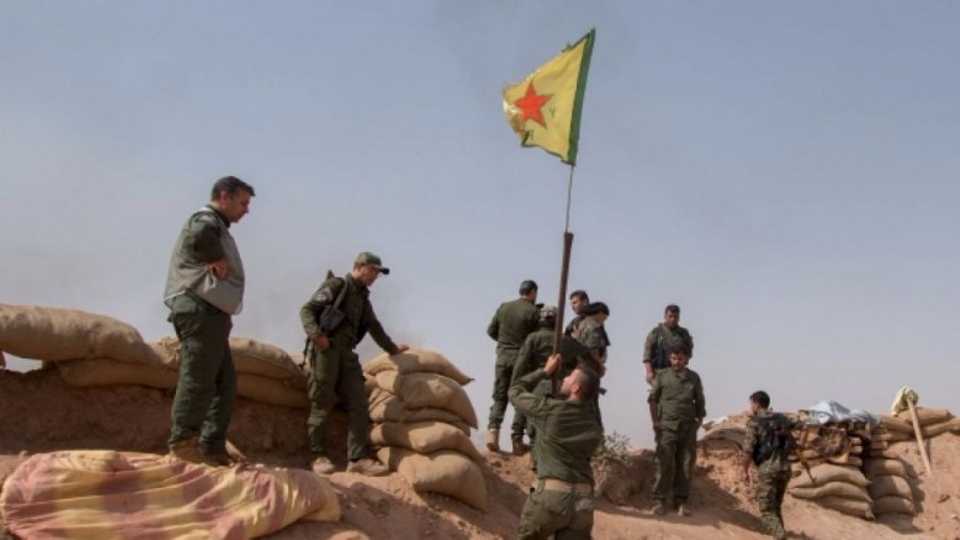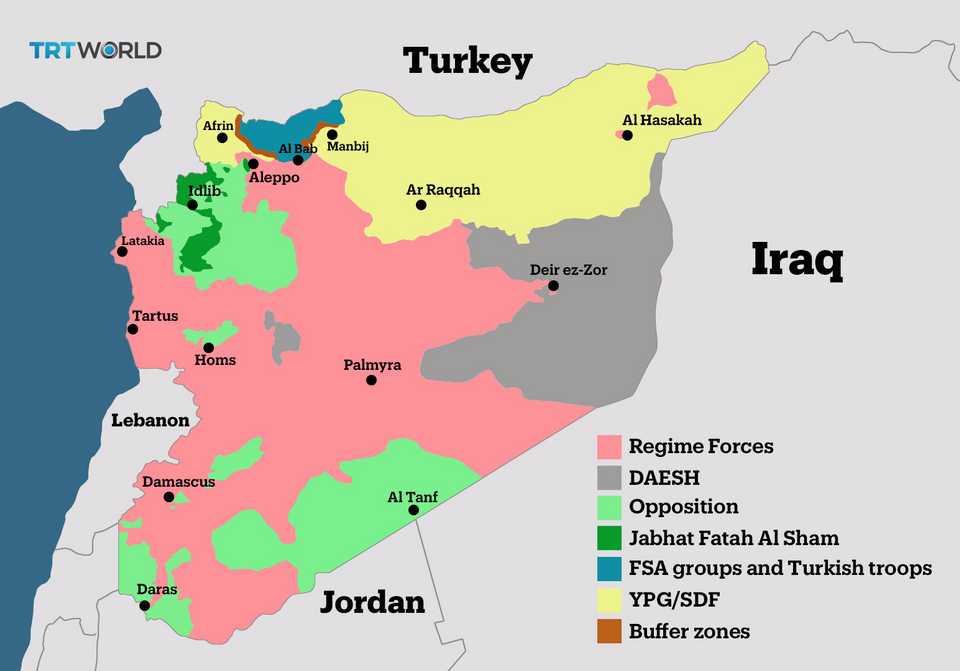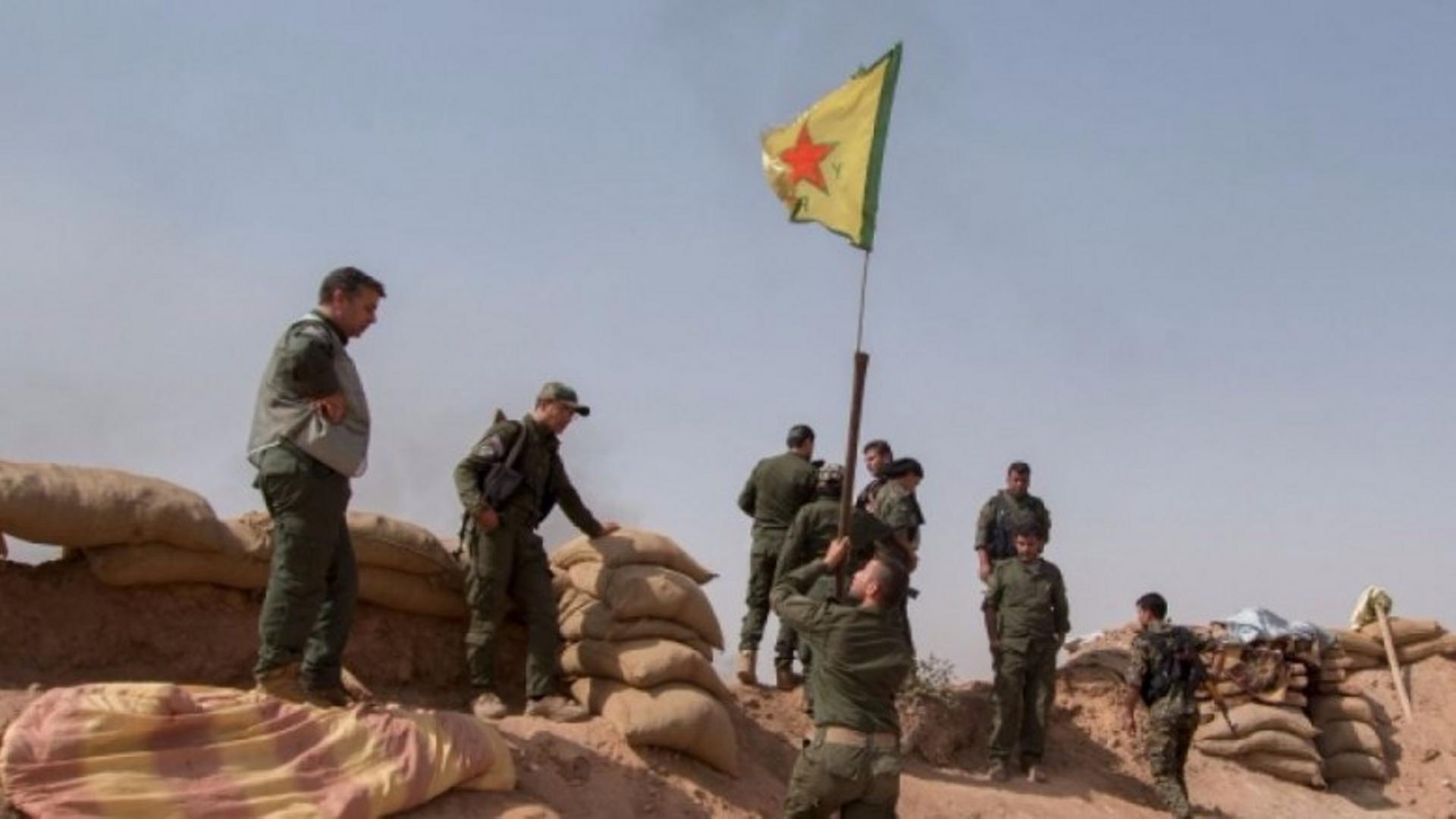
On Wednesday, Russian troops and Syrian regime forces moved to east Afrin to create a buffer zone between the YPG and Turkey-backed opposition forces, called the Free Syrian Army (FSA). That move was to prevent Turkey from launching an attack on the YPG – which Turkey considers a terrorist group, and despite Russia and Turkey working together in Syria.
The statement came from the Chief of the Main Operational Directorate of the Russian Armed Forces, Commander Sergei Rudskoy on Wednesday. According to Moscow-based news website Sputnik, in a briefing to reporters, Rudskoy said “In order to prevent provocations and possible clashes between detachments of the Free Syrian Army formations in the north of Syria and the Kurdish militia [YPG] with the assistance of the Russian reconciliation center, a de-confliction zone has been established in the Tel Rifat area.”
He also added that units of the Syrian regime troops had replaced the YPG and a unit of Russian army had been deployed to the “deconfliction zone” that Russia declared unilaterally. A deconfliction zone is an area agreed on by all parties where no conflicts would take place.

How does Russia’s move in east Afrin affect Turkey?
Two months ago, Turkey reportedly planned a second military operation in east Afrin, where Turkish soldiers and Turkey-backed Syrian opposition fighters were based on the front line. The military move was planned to help those soldiers pass through Idlib. The next step would be a joint-operation to Idlib with Russia. Idlib is one of the deescalation zones that Russia and Turkey have agreed on.
But something unexpected happened. Jabhat Fatah Al Sham took over all of Idlib. Jabhat Fatah Al Sham is the Syrian affiliate of Al Qaeda. And joint-operation plans were postponed because of US involvement in Idlib.
In the course of postponing these plans, Turkey stationed its forces next to the YPG. Small-scale clashes continued. At that point Russia stepped in and placed its forces between the YPG and Turkey-backed opposition groups to form a buffer zone. The move has protected the YPG in Afrin and forced Turkey to postpone its plans to launch an operation.
Russia had created another buffer zone using Syrian regime forces at the beginning of March right after Turkey-backed opposition forces defeated Daesh and arrived on the border with Manbij. Manbij is another district which the YPG controls. This is the second time Russia has prevented a possible Turkish attack on the YPG.
Why is Afrin important to Turkey?
Afrin is in northwest of Syria, and the YPG has been in control of that area for the last three years. The YPG is the Syrian affiliate of the PKK, which is a designated as a terrorist group by Turkey, the US and the EU. The PKK has been fighting Turkey for more than 30 years and has caused the deaths of more than 40,000 people. Some of the people killed are civilians.
Taking advantage of the chaos caused by the civil war in Syria, YPG has taken control of Afrin and Syria’s northeast. In the northeast, the YPG is strongly backed by the US. More than 200 American soldiers are based there to assist and support the YPG. This policy move has angered its NATO ally, Turkey and damaged bilateral relations.
Turkey started an operation last August between the two areas under YPG control, so that YPG militias couldn’t create a contiguous corridor.
What would the political consequences of the move be?
The next round of Astana talks between Turkey, Russia and Iran will be held on September 14 and 15. According to unnamed Turkish officials and Syrian opposition sources who have talked to TRT World, plans for an operation in east Afrin have been put aside for now. Idlib will now be on the top of the agenda.
In south of Idlib, regime forces backed by Russia and Iran are ready to fight against Jabhat Fatah Al Sham. On the Turkish border, there are a small number of Turkey-backed opposition groups left.
What is Turkey’s next step in Syria?
Meanwhile, Syrian opposition’s interim government, which is based in Gaziantep, Turkey, is creating a new national army. Forty-three different groups from the opposition forces have committed to join the new army. The interim government sources told TRT World that not only Turkey, but also Saudi Arabia and Qatar have declared their support for the new army.
These armed groups consists of around 50,000 fighters and are mostly active in the area where Turkey held the operation last year.
The new national army also includes Ahrar al Sham, which is considered as a terrorist organisation by Russia. The US has not legally designated the group as a terrorist organisation, but administration officials often call the group as a terror group.









Discussion about this post